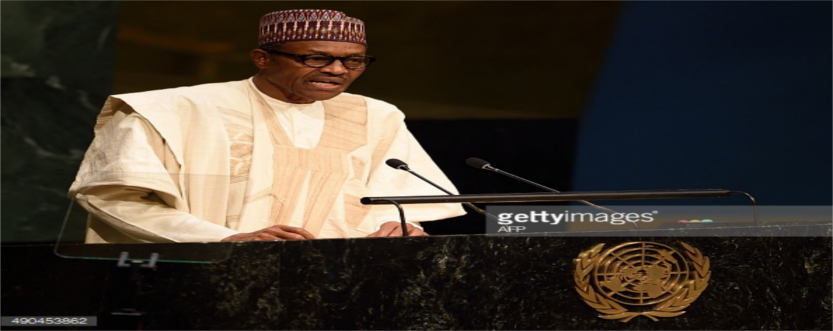The trip of President Muhammadu Buhari to the United States recently has brought financial benefits of about $11.6 billion to the country aside from the promissory notes from the G8 and the United Nations.
This disclosure was made yesterday by the minister of defence, Brigadier General Muhammad Mansur Dan-Ali, while declaring open the Defence Advisers/Attaches Annual Conference 2015, where he expressed optimism that the menace of Boko Haram terrorism will soon come to an end.
He said, “Some of the more immediate benefits of the president’s trip to the US include: the proposed $2.1 billion fund from the World Bank for the redevelopment of the Boko Haram-battered Northeast; $5 billion from the US investors in Nigeria’s agricultural sector; $1.5 billion investment from the US in our country’s power sector.”
The minister also recalled the steps taken by the president shortly after his inauguration that has brought a new vigour and approach to the military in the ongoing operation against the terrorists in the Northeast.
“It may interest you to note that since taking office in May 2015, President Buhari has made efforts to revive the government’s campaign against Boko Haram and the Nigerian Army has reclaimed territories from the extremist group.
“The president has met with his counterparts in Chad, Niger and Cameroon, three neighbouring countries that have also suffered from attacks by the insurgents and are contributing to the regional fight against the terrorists.
“He similarly embarked on consultation with major powers like the United Kingdom, France and the United Nations.
In all these engagements, he solicited cooperation and assistance in ending the Boko Haram insurgency which all came with tangible responses and promises of deepening cooperation with the country”, he stated.
Having asked the participants some rhetorical questions, the minister said, “As a nation, we must make useful choices, maximally explore our opportunities, engage in partnerships that promote our defence interests while projecting our national values by being a more functional and respected player in the international system.”
Earlier in his remarks, the chief of Defence Intelligence, Air Vice Marshal Monday Riku, observed that one of the tasks of the DIA and the Defence Attaché system is to enable the armed forces and the entire national security system to function within the nation’s environment.
He stated, “Without the appropriate economic, sociological, technological and alliance comprehension, our military forces cannot be equipped, cannot function, and cannot succeed. These trends in the wider world dictate whether we will have allies or lose them, whether we have markets for our energy and other products and whether transnational ideological trends will affect our own society”.
“We have already embarked upon a significant programme of cooperation in military operations and intelligence with our multi-national Joint Task Force coalition of which Niger, Cameroon, Chad and Benin Republic are members, with the support of out of continent allies”.
“As a provider of internal and external defence intelligence for defence planners, the agency has deployed technology in intelligence gathering and further evolved a sustainable psychological operations mechanism for the armed forces to address and complement the counterinsurgency operations in the North East”.
“It has similarly embarked on de-radicalisation, re-integration and rehabilitation programme dubbed Operation Safe Corridor in the North East”.
Present at the occasion were the chief of defence staff, the chief of army staff, the chief of naval staff, the permanent secretary, Defence Ministry, Ambassador Danjuma Sheni, representative of the inspector general of police, and some para-military agencies.
Source: Leadership




